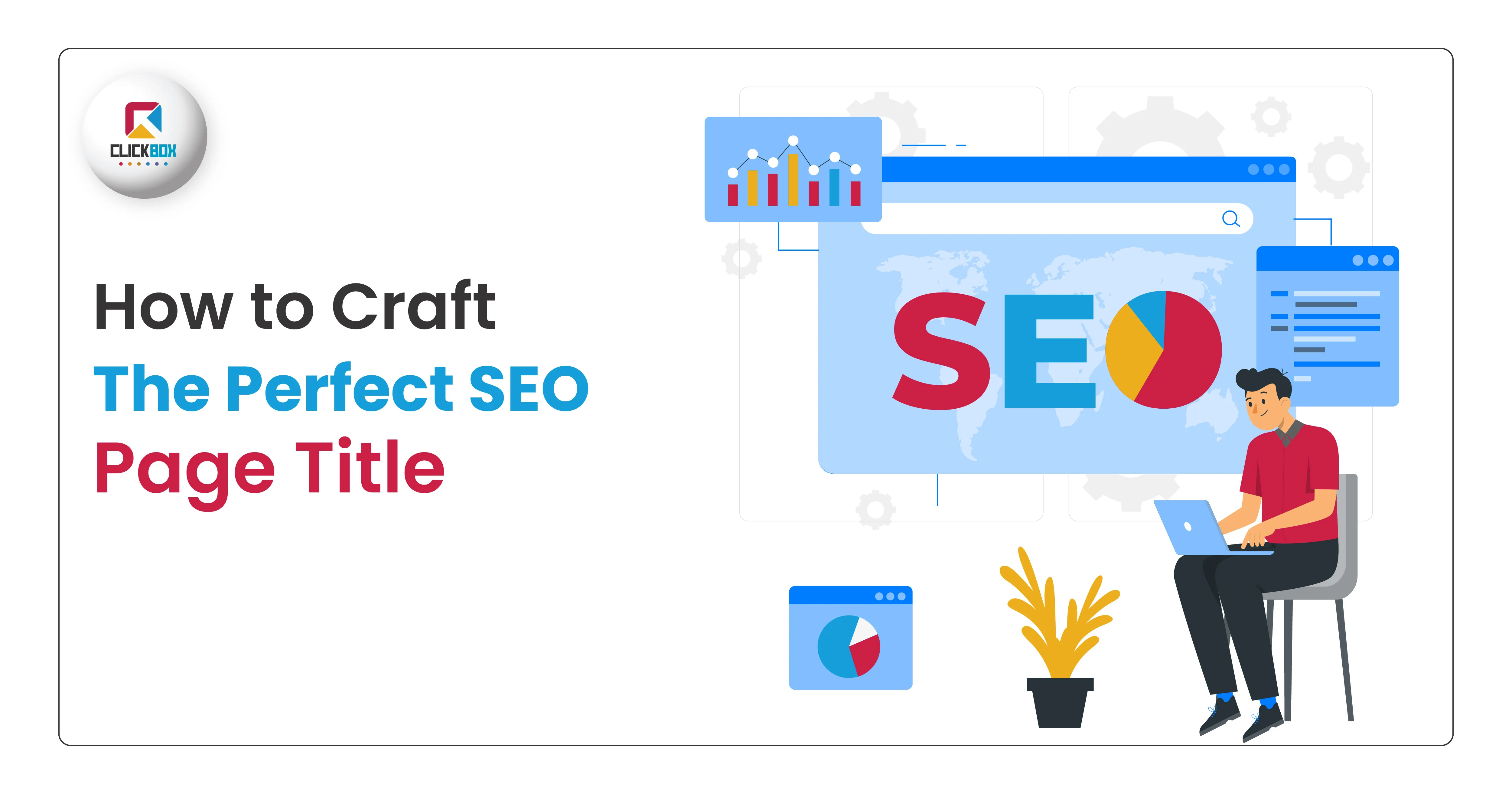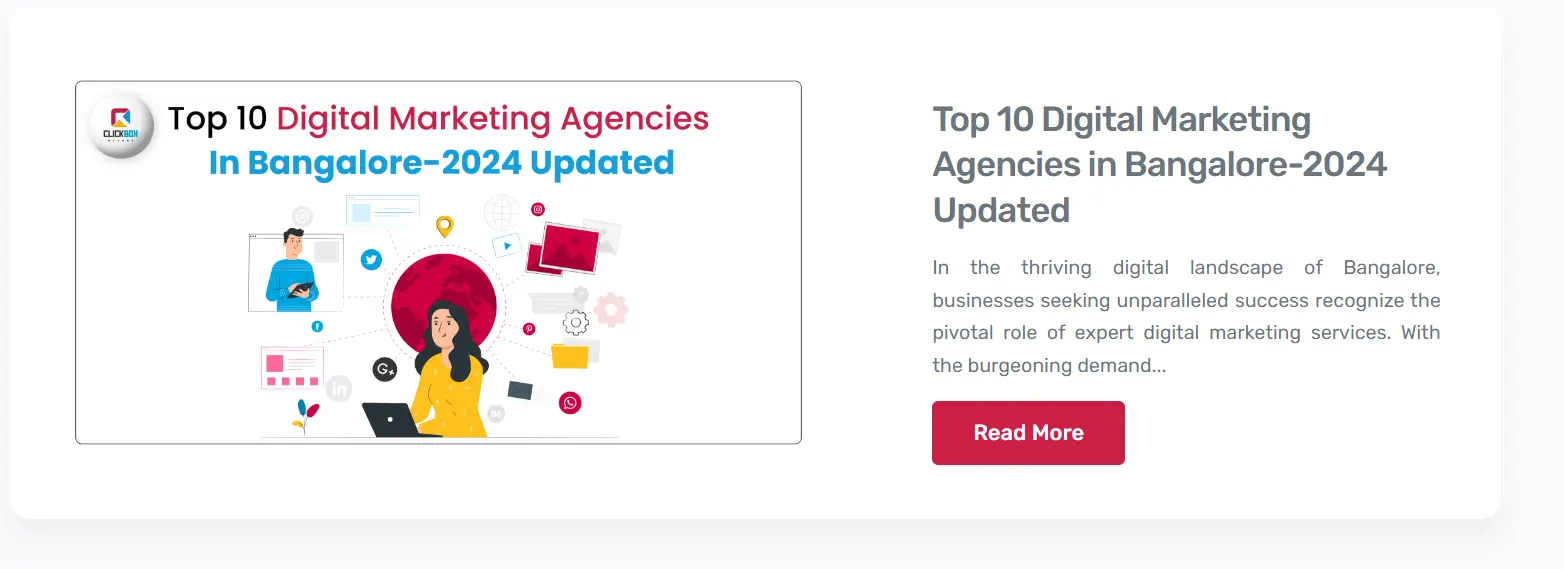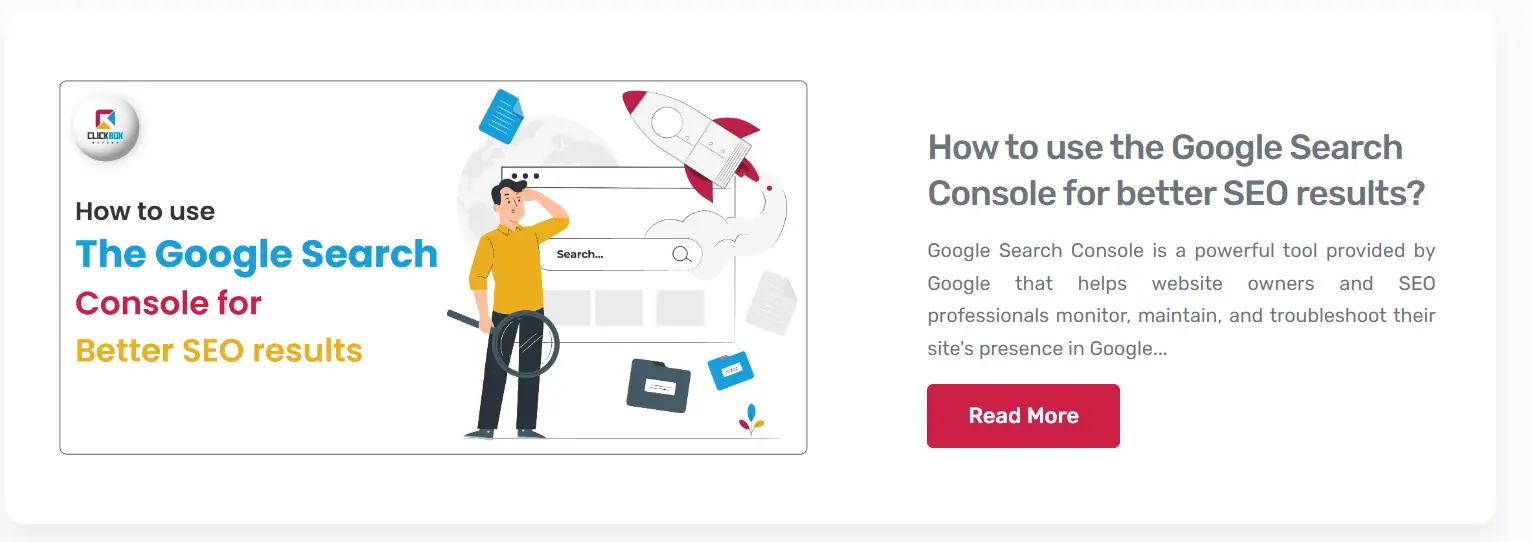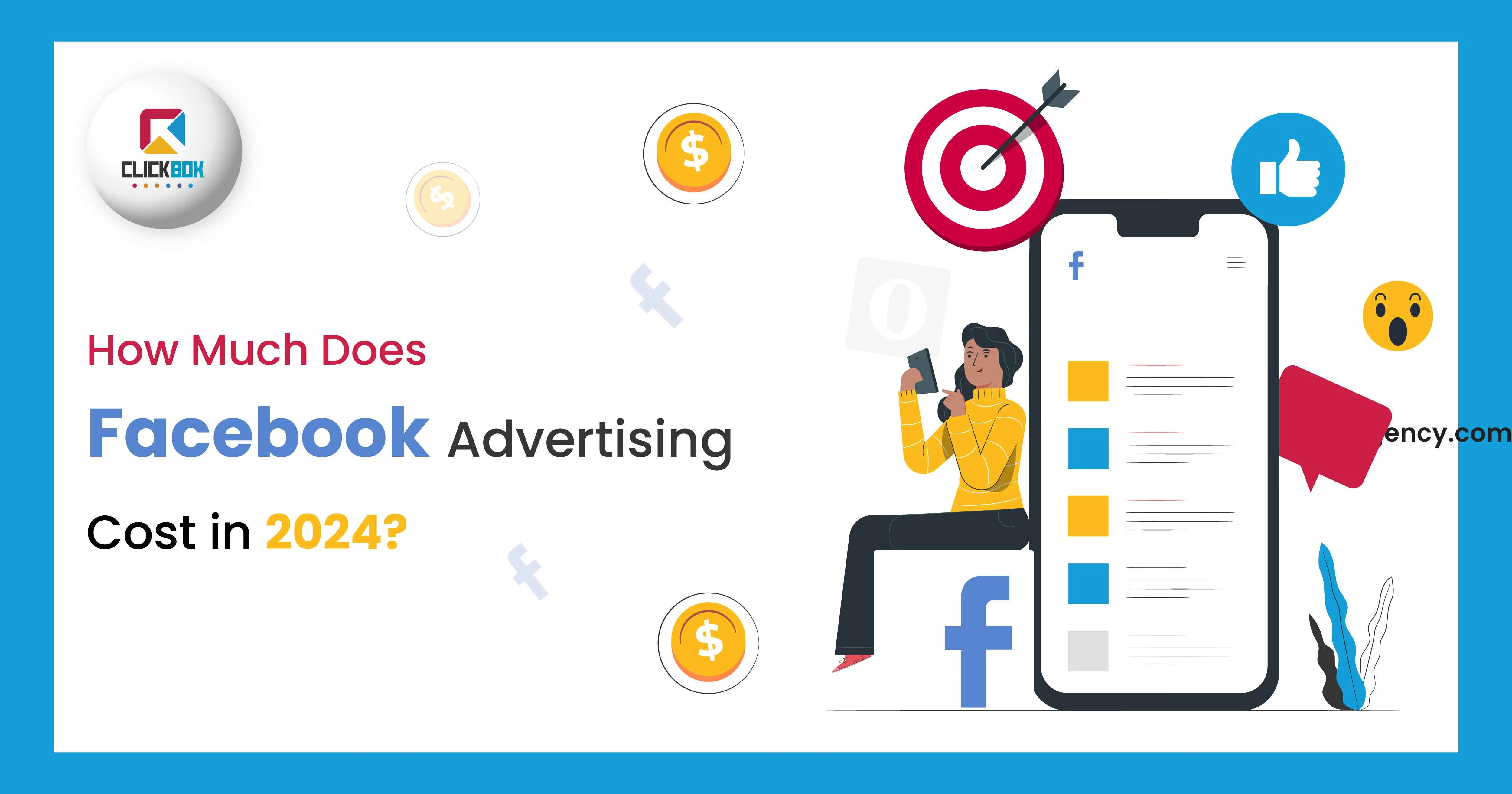
9 Strategies on How to Craft the Perfect SEO Page Title
Creating the perfect SEO page title is much like crafting a key that unlocks the vast potential of digital visibility and engagement. As the first interaction that users have with your content on search engines, the title holds immense power, influencing both click-through rates and search rankings. A best SEO title not only captures the essence of the content but also seamlessly incorporates SEO best practices to outshine competitors and resonate with potential readers.
In this comprehensive guide, we’ll explore the intricacies of best SEO title creation, providing you with actionable strategies and insider tips to refine your approach. From incorporating the right keywords to leveraging numerical data and power words, each element of your title can significantly enhance its performance. Whether you're a seasoned marketer or a content creator looking to boost your SEO efforts, these insights will help you craft titles that are not only optimized for search engines but also compelling enough to draw clicks. Dive into the art and science of creating best SEO titles that work—titles that not only rank but also captivate the audience's attention in the crowded digital landscape.
9 Essential Strategies To Master This Art And Propel Your Content To The Top Of Search Engine Results.
In order to dramatically increase the exposure of material on search engines, the following lists nine essential strategies for crafting flawless SEO page titles. These techniques can be used to optimize titles, which raises the possibility of ranking highly in search results and enhancing audience interaction.
1. Include Relevant Keywords
Keywords serve as the compass that directs search engine algorithms to the material that you have written. Relevant keywords in your title let consumers and search engines know what kind of material you have. Identify the terms that people in your target audience are searching for by conducting in-depth keyword research, then skillfully include those terms into your title.

Enhances Visibility: Relevant keywords improve your content's discoverability on search engines.
Targets Audience: Keywords connect your content with the interests and searches of your intended audience.
Boosts Ranking: Proper keyword inclusion helps boost your content's ranking, making it more likely to appear in top search results.
Increases Click-through Rates: Attractive, keyword-rich titles are more likely to be clicked by users.
2. Use Numbers in the Title
Use Numbers in the Title: Readers are drawn to numbers because they indicate succinct, actionable content. Not only do titles like "10 Ways to Boost Your Productivity" or "Top 7 Marketing Trends of 2024" grab attention, but they also communicate specificity and value, which increases click-through rates.

- Numbers attract attention and convey specificity in titles.
- They promise concise, actionable content, appealing to readers seeking quick solutions.
- Titles with numbers stand out in search results, increasing click-through rates.
- Numerical lists offer clear expectations, enhancing user engagement.
- Incorporating numbers in titles boosts readability and communicates value effectively.
3. Use "How-To" Titles
By framing your title as a solution to an issue, you may harness the curiosity and practicality of your audience. "How-To" headlines entice readers to click by offering insightful analysis and doable instructions. "How to Master SEO: A Comprehensive Guide" is one example of how to establish your content as an authority source and increase organic traffic.

- "How-To" titles promise solutions to specific problems, attracting readers seeking actionable guidance.
- They position content as authoritative resources, establishing credibility and trust with the audience.
- How-to titles drive engagement by offering clear, step-by-step instructions, catering to users' intent to learn or accomplish tasks.
- Such titles increase click-through rates and enhance user satisfaction.
4. Use Brackets () to Highlight Something
When creating SEO page titles, brackets are an effective technique because they serve as visual cues to highlight particular elements. They serve as attention-getters, drawing the reader's attention to important details in the title. Brackets give titles clarity and appeal, whether they are used to indicate a bonus (e.g., "Ultimate SEO Guide [Free eBook Included]") or to target a specific audience (e.g., "Social Media Marketing Tips for Beginners [Infographic]"). Brackets, which contain additional information or unique characteristics, improve understanding and pique the interest of readers, encouraging them to read on. Using brackets wisely can improve the look and feel of your titles in a world when content is abundant online. This will increase click-through rates and engagement levels.

5. Keep Title Characters Between 40-60 Characters
With people's attention spans getting shorter, succinct communication is critical in the digital world. It is recommended as a strategic guideline to maintain the number of characters in an SEO page title between 40 and 60. This range makes sure that titles are impactful and completely visible on search engine results pages (SERPs) while balancing the need to provide crucial information with brevity. These kinds of titles have a higher chance of grabbing users' attention at first sight and encouraging click-throughs. While shorter titles might not have enough information to draw readers in, longer ones run the risk of being cut off, which would reduce their efficacy. Following this character range helps content producers get the most out of click-through rates and visibility, making the most of the brief window of time when they can grab the attention of viewers in the crowded digital space.

Optimal Visibility: Titles within the 40-60 character range are more likely to be fully displayed in search engine results, ensuring maximum visibility to users browsing for relevant content.
Enhanced Click-Through Rates: Concise titles are easier to digest and comprehend at a glance, increasing the likelihood of users clicking through to access the content, thus boosting click-through rates.
Improved User Experience: Shorter titles offer a smoother browsing experience by presenting relevant information succinctly, aligning with users' preferences for quick and efficient content consumption.
Reduced Risk of Truncation: Longer titles run the risk of being truncated in search engine results, potentially obscuring crucial information and diminishing their effectiveness in capturing users' attention.
Increased Search Engine Ranking: Search engines prioritize user-friendly content, including titles that adhere to optimal character lengths, ensuring the best SEO title. By following this guideline, content is more likely to rank higher in search results, driving organic traffic to the website or page.
6.Make Titles Descriptive:
Writing evocative titles is essential since they give readers an overview of the main points of your material. You can avoid using clickbait tactics that might lead to user dissatisfaction and higher bounce rates by accurately portraying the content and setting clear expectations. Honesty and pertinence in titles foster audience trust and promote sustained interaction. Building long-lasting relationships with your audience is based on this trust, which gives them a sense of dependability and legitimacy and encourages them to return for more.

Decreased Bounce Rates: Descriptive headlines minimize the likelihood of users bouncing back from your website after clicking a link. Delivering on the promise of the best SEO title keeps visitors engaged, lowers bounce rates, and signals to search engines that your material is useful and relevant.
Establishes Credibility: Builds Credibility: Providing evocative titles on a regular basis shows a dedication to openness and dependability. Websites that fulfill their promises have a higher chance of being trusted by users, which boosts your authority and credibility in your field. Return business and referrals to others are two ways that this trust can be demonstrated.
7 .Capitalize Your Titles:
In order to establish visual hierarchy and project professionalism, capitalize your titles. Readability and understanding are improved by capitalizing the first letter of every word (apart from articles, conjunctions, and prepositions). This procedure makes sure your title is visible in the middle of a long body of text while also adhering to grammar rules. Maintaining consistency in capitalization helps set your title apart from the competition, which improves user engagement and recognition in the cutthroat world of the internet.
| Capitalize | Do Not Capitalize |
|---|---|
| The First and Last Word | Short Preposition |
| Nouns and Pronouns | Articles |
| Adjective , Adverbs and Verbs | Short coordinating conjunctions |
8. Use power words:
The sentence highlights the usage of "power words" in crafting the best SEO title to elicit strong feelings and motivate visitors to take action. Words that are powerful and can make titles more engaging and entice readers to click include "ultimate," "essential," "exclusive," and "guaranteed." To prevent deceiving readers, these terms must be used cautiously and in a tone that is consistent with the content's overall significance. Inappropriate or excessive use might undermine the credibility of the content. Therefore, in order to really and appropriately increase the title's impact, power words should be carefully chosen. Join Clickbox’s digital marketing course to learn in depth about SEO strategies.
9. Avoid using brand name:
This sentence suggests that placing your brand name first in SEO page titles is not a good idea since it can make it less likely that people will find your content. The majority of consumers look for broad subjects or solutions rather than individual brand names. As such, it makes more sense to create names that speak to the common questions and interests of your target market. Using this strategy improves the likelihood that your content will show up in search results. It is advised to reserve brand mentions for meta descriptions and the body of content, as these are the areas where brand recognition can strengthen the story or offer context without detracting from the title's ability to draw in more readers.
Conclusion:
The sentence emphasizes how difficult it is to create an exceptional SEO page title without combining data analysis, creative thinking, and user needs. To effectively answer the searcher's intent, a deliberate approach combining analytical insights and creative thinking is needed.
The inclusion of keywords that are specifically related to the users' searches, interest-grabbing "How-To" forms and numerical data, and the usage of brackets to highlight particular elements are important strategies. In order to capture readers' attention, titles should also be brief (40–60 characters), detailed, and captivating. Power words and proper capitalization should be used. Moreover, it cautions against overusing brand names because this may lessen the title's applicability to a wider range of viewers. Clickbox- The best digital marketing agency in coimbatore provides all kinds of digital marketing services.
In the end, the statement emphasizes how crucial the title is as the main point of entrance for your content and exhorts you to write it in a way that entices readers in and greatly increases content success.
John Click
Digital Marketer | SEO Copywriter | Content Strategist
Experienced digital marketer with a proven track record in creating compelling content that not only engages audiences but also drives conversions and enhances SEO visibility. My expertise extends beyond marketing strategy to crafting persuasive narratives that resonate with your target audience. I combine data-driven strategies with captivating writing to deliver measurable results, ensuring your brand shines in the digital landscape.







